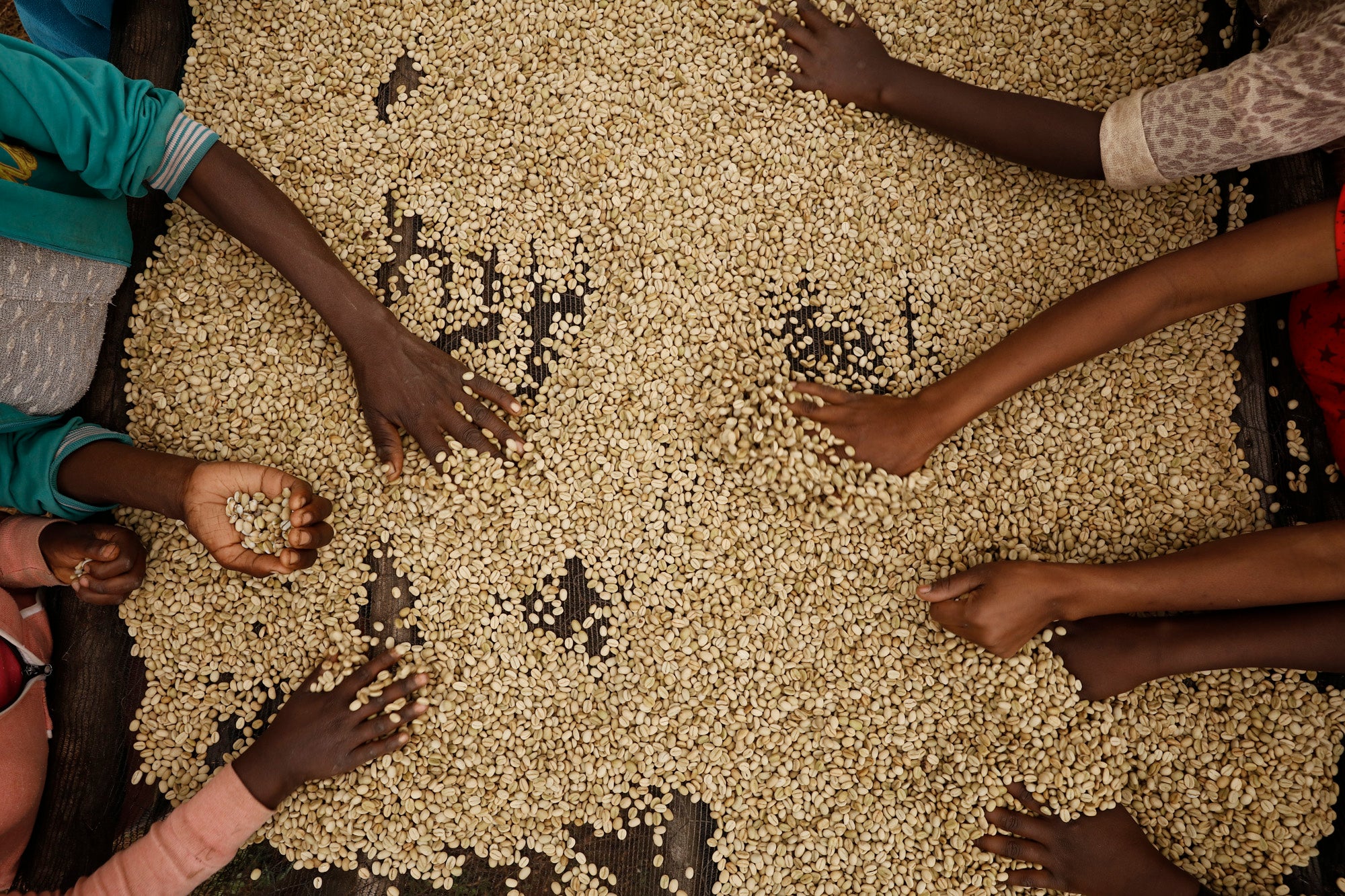Alasitas, Washed Caturra, Bolivia 2018
Flavour description: This is a creamy cup profile with medium body. Notes of caramel, green apple reminding of drinking chocolate with marshmallows, with a finish of cacao nibs.
Colour: Red
Category: Comfortable
Producer: Pedro-Pablo, Daniela and Pedro Rodriguez
Location: Bolinda, Caranavi, Bolivia
Varietal: Red Caturra
Lot: Mirador
Harvest: August to September 2018
Elevation: 1580 masl
Processing: Fully Washed
Roast: Light to medium to present the natural characteristics of the coffee.
This is the coffee that we have been buying from Alasitas year after year, and this is one of those coffees that we could drink plenty of, every day, for the rest of our lives. We are happy to receive this coffee every year, it is such a pleasure to drink, and to serve.
This is a very important relationship for us at Drop, and one we are very proud to have. We go to their farms for a visit every year during harvest, and stay at the mill, they have also made their way up to Stockholm to visit the team at Drop. We, as friends have been growing together for a few years now.
If it weren’t for the Rodriguez, Bolivian coffee would look a lot different today. They work under the name Agricafé as exporters, and we are buying all of our Bolivian coffees through them. They also have a sustainability project ‘Sol de Manana’, where they are working with other producers, providing them with fertilisers and plants, and advising , with their agronomical expertise. They also process the coffees from all of the producers we are buying from at their washing stations and dry mill. On top of all of this, they have farms of their own, including Alasitas.
Pedro Roudriguez started sourcing coffee from small coffee producers in 1986. His family own mills, and they process and exports coffee for other farmers in the Caranavi and Sud Yungas region. Without people like the Roudriguez family working in coffee in Bolivia, the future of Bolivian coffee would be at risk of disappearing, but with the steady decline of coffee production, the sustainability of their export business is in jeopardy.
The farm Alasitas
In 2014, the Rodriguez family bought land in Caranavi region to showcase their practises and educate other producers on sustainable farming, as well as increasing the overall volume at their mills. They prepared the land on 20,6 hectares and planted Red Caturra, Java and Gesha. The name of the farm is Las Alasitas, which in the Aimara native language means “buy me”.
Caranavi is located 150 kilometres north of La Paz city, it is seen as the centre of Bolivian specialty coffee production. With the super-rich soil, combined with very high altitudes, for me it is the epicentre for coffee production in Bolivia. We’re very proud to present this Bolivian coffee to you all, for the impact it will have on the livelihood of the people working for the Rodriguez family as well as the future of Bolivian specialty coffee. But don’t forget the sugary, clear taste profile.
Caturra varietal
To showcase how good Bolivian coffee can taste, the Rodriguez family has planted different varietals such as this Caturra.
Caturra is a natural mutation of the Bourbon variety. It is a mutation called dwarfism, which, yes causes the plant to grow smaller. It was discovered in Brazil in the early 1900s, but was never officially released in Brazil. It has however become common in Central America, since about three decades after its’ introduction in Guatemala in the 1940s. Caturra attracted some attention from producers and breeders because of their small size, which allows them to be planted closer together. Its’ closely spaced branches also enable it to produce more fruit in the same space.
Caturra is also pest friendly, and can be difficult to grow, just like Bourbon.
Sustainability
In the last four years the Roudriguez family have been building a sustainability project with the producers delivering to their mills, called ‘Sol de Mañana. It is built on three mantras: economical sustainability, social understanding and environmental awareness. We are buying coffee from other producers in Bolivia, such as Carmelita, Colque and Tadassio Mamani who are receiving extra support from the Roudriguez family. They help other producers produce higher quality and larger quantities in a sustainable way.
For all of the coffee we are buying through the Roudriguez, 20% of the price we pay them goes directly to the farmers delivering the coffee. These numbers are completely transparent, and available for all of the producers.
Read more about Bolivia as a coffee producing country here.
